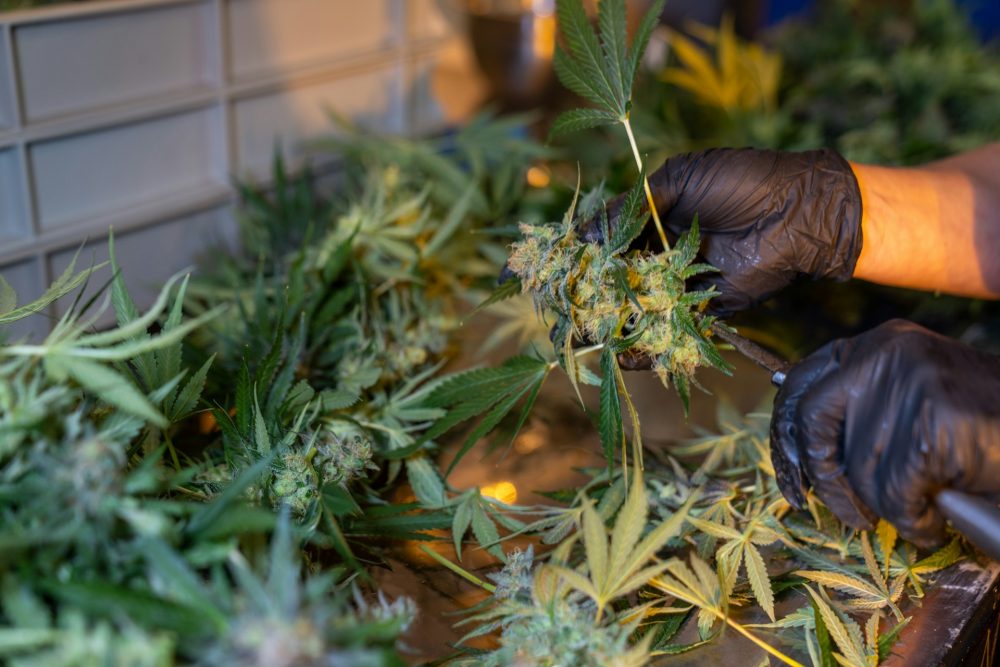Cannabis
First Harvest in Schleswig-Holstein’s Cannabis Cooperatives Was distributed
Schleswig-Holstein’s cannabis cooperatives have begun harvesting, with one distributing 13.6 kilograms to members. Three of ten associations have harvested, though two are still drying their crops. Since legalization on July 1st, cooperatives may operate under strict rules. Authorities conduct inspections, review documents, and analyze samples to ensure compliance, safety, and product purity.

The first cannabis cooperatives in Schleswig-Holstein have begun harvesting, marking a significant moment in the state’s implementation of Germany’s new cannabis regulations. According to the Ministry of Agriculture in Kiel, approximately 13.6 kilograms of cannabis have so far been distributed to members of one cannabis cooperative.
While this distribution offers an early glimpse into the outcomes of legal cultivation, the total number of cannabis plants grown across the state remains unknown due to varying structures and cultivation methods within the cannabis cooperatives.
Oversight, Early Results, and State Controls on Cannabis Cooperatives
Reports indicate that Schleswig-Holstein currently has ten registered cannabis cooperatives. Of these, three have completed their initial harvests. However, only one association has proceeded with distributing its cannabis to members. The remaining two harvests are still undergoing the drying process, which is a required step before the product can be safely shared.
Since July 1st, following the legalization of cannabis in Germany, non-commercial cultivation cannabis cooperatives consisting of up to 500 members have been permitted to begin operations and apply for official authorization. These associations must comply with strict regulations governing cultivation, handling, and distribution. Failure to follow the cannabis law can result in monetary penalties, underscoring the importance of proper adherence to the new legal framework.
To maintain quality and ensure that all legal requirements are met, authorities conduct ongoing inspections of the cannabis cooperatives. These inspections take place both on a scheduled basis and in response to specific concerns. Officials visit every growers’ association in the state to verify compliance with safety and regulatory standards. During these visits, inspectors examine the facilities, review documentation, and confirm that all practices align with established guidelines.
As part of this oversight, the state laboratory collects samples of cannabis and propagation material. These samples undergo analysis to determine their composition, including THC and CBD levels. The primary goal of this testing is to protect consumers by ensuring that the cannabis produced by the cannabis cooperatives is free from harmful substances and meets the required purity standards. Through these measures, the state aims to guarantee both safety and transparency within the emerging legal cannabis sector.
__
(Featured image by crystalweed cannabis via Unsplash)
DISCLAIMER: This article was written by a third party contributor and does not reflect the opinion of Born2Invest, its management, staff or its associates. Please review our disclaimer for more information.
This article may include forward-looking statements. These forward-looking statements generally are identified by the words “believe,” “project,” “estimate,” “become,” “plan,” “will,” and similar expressions. These forward-looking statements involve known and unknown risks as well as uncertainties, including those discussed in the following cautionary statements and elsewhere in this article and on this site. Although the Company may believe that its expectations are based on reasonable assumptions, the actual results that the Company may achieve may differ materially from any forward-looking statements, which reflect the opinions of the management of the Company only as of the date hereof. Additionally, please make sure to read these important disclosures.
First published in Hamburger Abendblatt. A third-party contributor translated and adapted the article from the original. In case of discrepancy, the original will prevail.
Although we made reasonable efforts to provide accurate translations, some parts may be incorrect. Born2Invest assumes no responsibility for errors, omissions or ambiguities in the translations provided on this website. Any person or entity relying on translated content does so at their own risk. Born2Invest is not responsible for losses caused by such reliance on the accuracy or reliability of translated information. If you wish to report an error or inaccuracy in the translation, we encourage you to contact us.

-

 Crypto1 week ago
Crypto1 week agoBitcoin Rebounds Above $70K as Crypto Markets Show Fragile Signs of Recovery
-

 Biotech6 days ago
Biotech6 days agoEurope Launches Personalized Cancer Medicine Initiative
-

 Impact Investing2 weeks ago
Impact Investing2 weeks agoEnfinity Launches First Solar Plant in Italy with Microsoft
-

 Crypto2 days ago
Crypto2 days agoBitcoin Wavers Below $70K as Crypto Market Struggles for Momentum






















